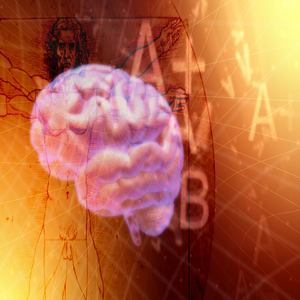Counterfactual Thinking

Most of us have experienced the “I should have,” “I could have,” “If only I” and “I would have” moments. Times when we lament our missteps. We say to ourselves that we should have invested in a certain stock, should have married Agnes or become a doctor instead of a cab driver. Though it can be positive, for some people this kind of thinking becomes so pervasive that they simply cannot take any action in the present. So anything that we can learn about this process will likely help a great many people.
We refer to this process in which we evaluate how we would do things differently, as “counterfactual thinking.” Though it can be positive, and help us learn from our mistakes, it is a common psychological mechanism that causes us to harbor feelings of disappointment and regret. For some people this kind of thinking becomes so pervasive that they simply cannot take any action in the present. So anything that we can learn about this process will likely help a great many people.
A common research strategy in the study counterfactual thinking, is to have people read stories in which the main character makes decisions that will ultimately doom him or her to failure. Researchers then ask them how they would have done things differently.
But this method may not provide a complete picture of this mental process. New research published in the June issue of Psychological Science, which is a journal of the Association for Psychological Science, shows that our counterfactual thinking may be markedly different when we are actually experiencing failure rather than reading about someone else’s.
In a series of experiments, Vittorio Girotto of the University luav di Venezia in Venice, Italy and his colleagues attempted to demonstrate and explain the differences in counterfactual thinking between actors who actually experienced the problem and readers who just read about it.
The experimental subjects were divided into two groups:
- Actors who were asked to participate in a game in which they could win a reward by solving a math problem. They were then asked to choose one of two sealed envelopes: One was said to contain a difficult problem, and one supposedly contained an easy problem. In reality, both envelopes contained a problem that was nearly impossible to solve in the allotted time. Once the actors failed, they were asked to write at least one way in which things would have been better for them.
- In the second group, “Readers” read a story with a protagonist who faced the same choice and ended with the same negative outcome as the subjects did in the actor condition. Like the actors, readers were required to write at least one way in which things would have been better for the protagonist.
The readers and actors were very different in their counterfactual thinking. Readers tended to undo the protagonist’s choice to tackle the problem, while actors changed the way in which they tried to solve the problem. So a reader would say, “I should have picked another envelop,” while the actor would ask if he could use a calculator.
These results run counter to previous theories of counterfactual thinking. It was assumed that people who read a story construct the same counterfactuals as people who experienced the events described in the story. It was also believed that actors tend to avoid self-blame at all costs when thinking of alternatives. Instead, the actor-reader differences emerged even in conditions in which actors’ decisions made the best decisions that they could. The researchers said,
“Actors and readers produce different counterfactuals because they rely on different information, not because they have different motivations.”
In both cases, “what might have been” thinking can be stressful.
This research confirms something that we have been teaching for years:
Learn to detach from your aims and desires: you need passion and purpose. But you do not need the third “P:” Pain
Liberate yourself from the past: Healing, Meaning and Purpose has a whole section on novel ways to get rid of some of the “stuff” that most of us carry around in our bodies, our minds and our subtle systems.






